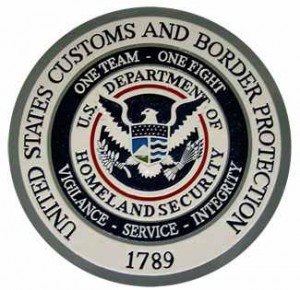Increase in Egg Prices Spurs Significant Increases in CBP Agriculture Specialist Fresh Egg Interceptions at Laredo Port of Entry
Written by Post Public Information Representative, Nov 16, 2015, Comments Off
LAREDO, Texas –CBP agriculture specialists at Laredo Port of Entry report an upsurge in fresh egg interceptions from travelers seeking cheaper eggs in Mexico due to avian flu-fueled egg price increases in the U.S.
“Our frontline agriculture specialists have seized a significant quantity of fresh eggs in recent weeks and we would like to remind the traveling public that fresh eggs and raw poultry are prohibited from entry,” said Port Director Gregory Alvarez, Laredo Port of Entry
Over a recent two-week period, CBP agriculture specialists at the Laredo Port of Entry seized over 700 fresh eggs in 14 interceptions. During the same two-week period last year, specialists seized 150 eggs in six interceptions. This summer, CBP agriculture specialists have had 236 instances where they have had to seize and destroy, or return an item of poultry origin (including eggs). At the same time last year, that number was at 141, reflecting an increase of more than 40%.
Since December 2014, USDA has confirmed several cases of highly pathogenic avian influenza (HPAI) H5 in the Pacific, Central, and Mississippi flyways (or migratory bird paths). The disease has been found in wild birds, as well as in a few backyard and commercial poultry flocks. The Centers for Disease Control and Prevention (CDC) considers the risk to people from these HPAI H5 infections to be low. No human cases of these HPAI H5 viruses have been detected in the United States, Canada, or internationally. The USDA has plans currently in place, which include surveillance, reporting, biosecurity, movement control, vaccination and depopulation. These plans can be adjusted and applied to effectively control any new virus outbreak.
CBP would like to remind the public that fresh eggs and raw poultry are prohibited from Mexico as Mexico is affected with Newcastle Disease and Highly Pathogenic Avian Influenza (HPAI). Attempting to bring in these prohibited items would lead to traveler delays and may result in a fine ranging from $300 to $1000.




